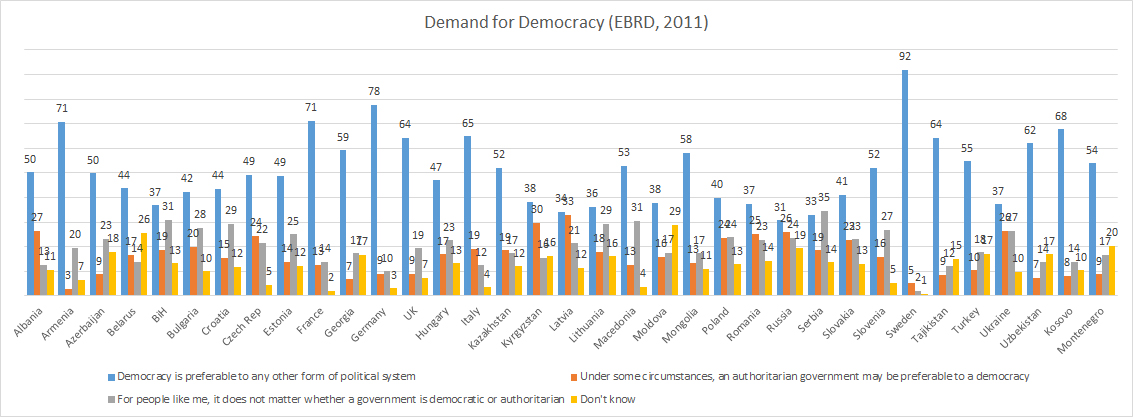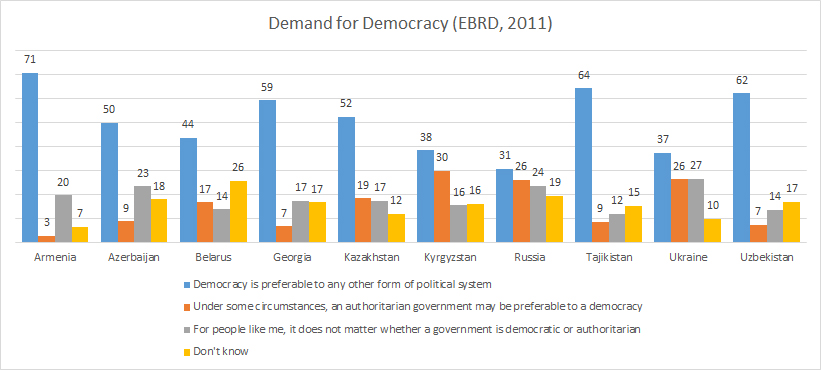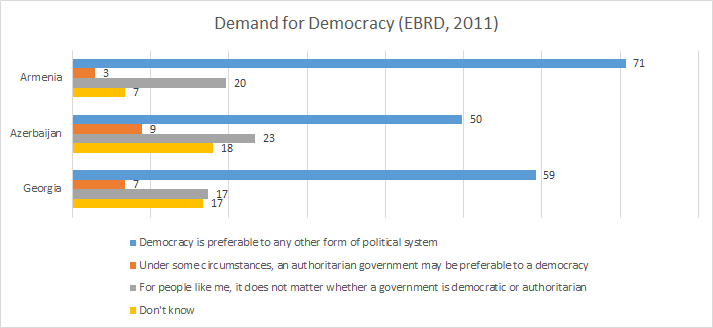Demand for Democracy in Europe and Eurasia
Demand for democracy is one of my favorite outcome (dependent) variables. It isn’t perfect, but it is used frequently in public opinion surveys and has been shown to be correlated with all sorts of interesting things.
In a transitional society, popular demand for democracy (or legitimation) takes the form of a choice between competing regime types with which people have some degree of familiarity. Thus, survey questions should preferably not ask people how much they like democracy in the abstract (for example, through agreement or disagreement with one-sided Likert scale statements). Instead, they should offer respondents realistic choices between democracy and its alternatives.” (from here)
“Which of these three statements is closest to your own opinion? (A) Democracy is preferable to any other form of government; (B) In certain situations, a nondemocratic government can be preferable; or (C) To people like me, it doesn’t matter what form of government we have.”
A study that I did with Erik Nisbet and Elizabeth Stoycheff found that: Internet use, but not national Internet penetration, is associated with greater citizen commitment to democratic governance. Furthermore, greater democratization and Internet penetration moderates the relationship between Internet use and demand for democracy.
So, I was playing around with the EBRD Life in Transition II data today and did some graphics.
Wow, Swedes love democracy.
The variance in the former Soviet states is really interesting.
And then we have the Caucasus. Looks like Armenians LOVE democracy.
Only half of Azerbaijanis prefer democracy.
Pretty high don’t knows in Azerbaijan and Georgia.


